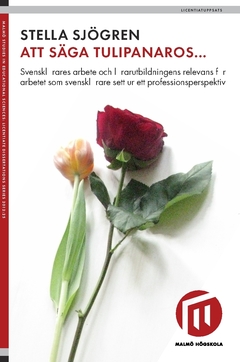English abstract
This study is concerned with Swedish as a school subject, with teachers in Swedish and with the relevance of teacher training, all of which I discuss in the perspective of professionalism. When it comes to content, the Swedish subject is characterized by disruption. The informants describe different subjects, but communicative skills seem to be their most important objective. And among the informants the collective view on the Swedish subject is that of Swedish as Skills. Furthermore, the concept of integrated studies in secondary school is interpreted and construed in two different ways, formal subject integration and one that might be called “true” subject integration. The study also points to discrepancies between teacher education and the profession. One such discrepancy concerns the core of Swedish as a subject. Another concerns the teaching and responsibility of children with reading and writing disabilities and other states of difficulties, such as ADHD. The teachers in this study did not get such proficiency during teacher training, and this causes frustration and feelings of inadequacy. At the same time the Swedish educational authorities presuppose that this area is the concern of every teacher, and not solely the concern of teachers of the Swedish subject. The subject concept, the use and ideology of steering documents, subject integration as well as the status of teacher training are factors that seem to have an impact on the autonomy and status of teachers.


